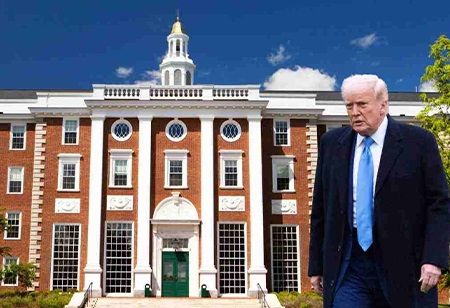- The Trump administration barred Harvard University from enrolling international students by revoking its SEVP certification.
- Thousands of international students at Harvard face transferring or losing legal status in the U.S.
- DHS Secretary Kristi Noem accused Harvard of fostering violence, antisemitism, and coordinating with the Chinese Communist Party.
China has sharply condemned the Trump administration’s recent move to bar Harvard University from enrolling international students, pledging to protect the rights of Chinese students studying abroad. The decision, announced by the U.S. Department of Homeland Security (DHS), sparked a swift backlash from Beijing.
“China-U.S. education cooperation benefits both sides. China opposes politicizing education cooperation”, Chinese Foreign Ministry spokesperson Mao Ning stated during press briefing. “What the U.S. seeks to do will undoubtedly hurt its own image and reputation globally. China will firmly protect the legitimate and lawful rights and interests of Chinese students and scholars overseas”, she added.
The DHS action came when Secretary Kristi Noem revoked Harvard’s certification from the Student and Exchange Visitor Program (SEVP), a status required for institutions to enroll foreign students legally. This move threatens thousands of international students with forced transfers or loss of legal status in the U.S.
Noem justified the decision by accusing Harvard of “fostering violence, antisemitism, and coordinating with the Chinese Communist Party on its campus”. She emphasized that SEVP certification is 'a privilege, not a right' and criticized universities for benefiting from foreign tuition fees, which contribute to their substantial endowments.
Harvard, the nation’s wealthiest university, enrolled 6,793 international undergraduate students for the 2024-2025 academic year making up 27.2% of the total student population. Among them, over 1,200 are Chinese nationals, underscoring the significant impact of the ban.
Also Read: Asia's Top 5 Schools with the Most Competitive Admissions
The move adds to escalating tensions between the U.S. and China, coming shortly after the European Commission announced plans to respond to Trump-era trade policies. The EU proposed tariffs on more than $100 billion worth of American goods, including cars, alcohol, industrial products, and Boeing aircraft, if negotiations with Washington do not produce satisfactory results. The commission intends to debate these measures through June 10 with member states.
This latest confrontation highlights the growing complexities of international education amid broader geopolitical disputes, with repercussions for students, universities, and diplomatic relations alike.

